How Rich media destroys banner blindness of users
Banner blindness is a problem that advertisers are increasingly facing. People are skipping ads, and businesses are losing potential audiences. Today we’ll talk more about this phenomenon and explain how Rich Media’s interactive formats destroy banner blindness.
What is banner blindness and why it occurs
Can you remember the last time when you really paid attention to the noise of the refrigerator or the ticking clocks? At first these sounds are noticeable, but soon the brain gets used to them.
Banner blindness works in a similar way.
Experts believe that this is the result of the evolution of web user behavior. At the beginning of the Internet era, advertising banners attracted a lot of attention because they were something new and unusual.

Over the years, however, advertising has increased, and because of the growing volume of information, users began to ignore the placement of banners.
The term “banner blindness” was first used by Benway and Lane to describe the outcome of web site usability. During the task ( to find information on a website), most test participants consciously or subconsciously ignored the information presented in banners.

Why users don’t click on advertising banners
People have a natural ability to filter out unnecessary information by remembering only valuable data. It’s called selective attention or selective perception of information.
The Scroop test – an excellent example of how perception works. It requires selective attention for successful completion of the task. To assess your abilities, You can take this test.

The digital world also influences this phenomenon. If a user doesn’t have a lot of time and energy, they won’t have much desire to interact with advertising. For example, according to a new report from a market research firm, 2023 is the year of hyper fatigue.

Popular reasons for avoiding advertising also include:
- Placement. Ad placement is important to the user’s viewing experience. If the location or method of placement is incorrect, the possibility of “blindness” increases.
- Uninformative. Annoying, uninformative advertising is outdated – it irritates the user and keeps them from viewing the content. A person is ready to be distracted only by something interesting.
- Misconceptions. Some users consider absolutely all ads harmful – they’re afraid of getting viruses on their devices. And some don’t trust ads for privacy reasons. In both cases, users tend to avoid interacting with the advertising message.
However, it is important to remember – banner blindness can be destroyed!
To do this, it’s necessary to understand what tools help keep the user’s attention. This will allow advertisers to place ads effectively. Besides, according to statista, in Turkey, the UAE and many other countries there is an increase in the popularity of banner placement.
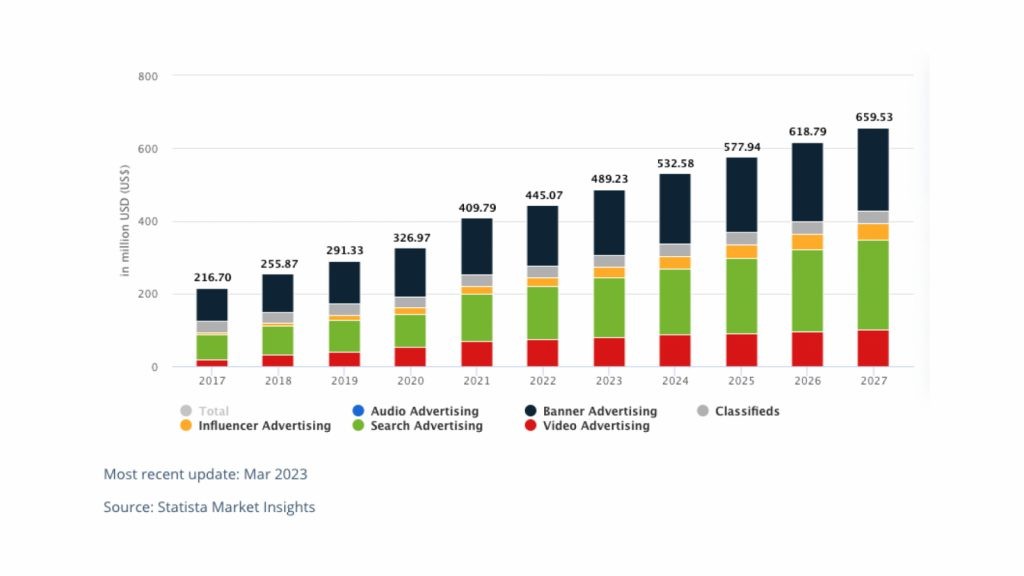
How rich media destroys banner blindness
Rich-media – banners with interactive and multimedia content.
They affect the user with sound, animation and video. These banners can be created by using Adobe Animate based on JavaScript and HTML5.
At BYYD we also work with a rich media placement format. Our company creates creatives based on the latest HTML hypertext markup, which helps structure and present online content.
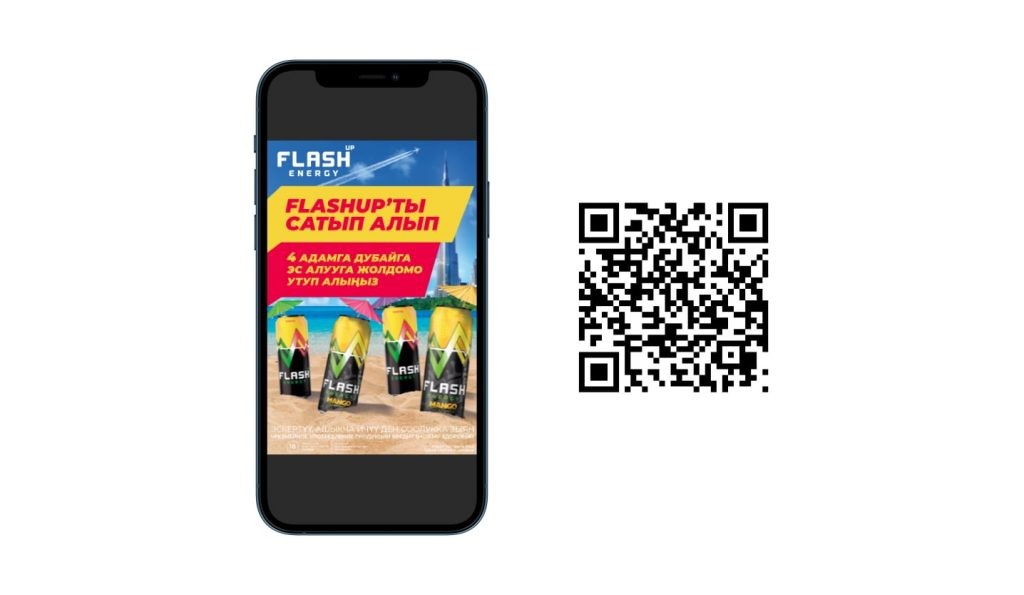
The banners created by our production department are placed in mobile apps. The placement options of the BYYD programmatic platform allow advertisers to show their ads in various kinds of applications: games, widgets, household, etc.
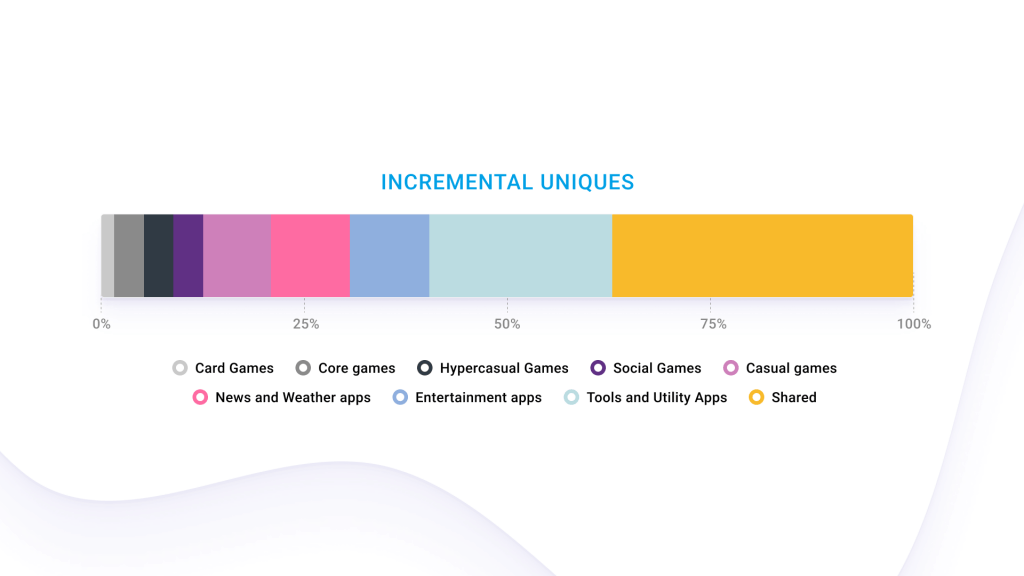
Back to the question – how does the rich media format affect user attention and break banner blindness:
• Thanks to interactivity.
Interactivity is a process that requires interaction. And in this case – the interaction between the creator and the user. Psychologists have found that information learns better through play. According to ProProfs, gamification is one of the 10 must-have features of a learning management system.

Rich Media also proves this – users are more likely looking at game formats.

• Thanks to multimedia.
Multimedia allows to combine different ways of presenting information into a single semantic block. In other words, to use text, sound, video, links, and much more in the one creative.
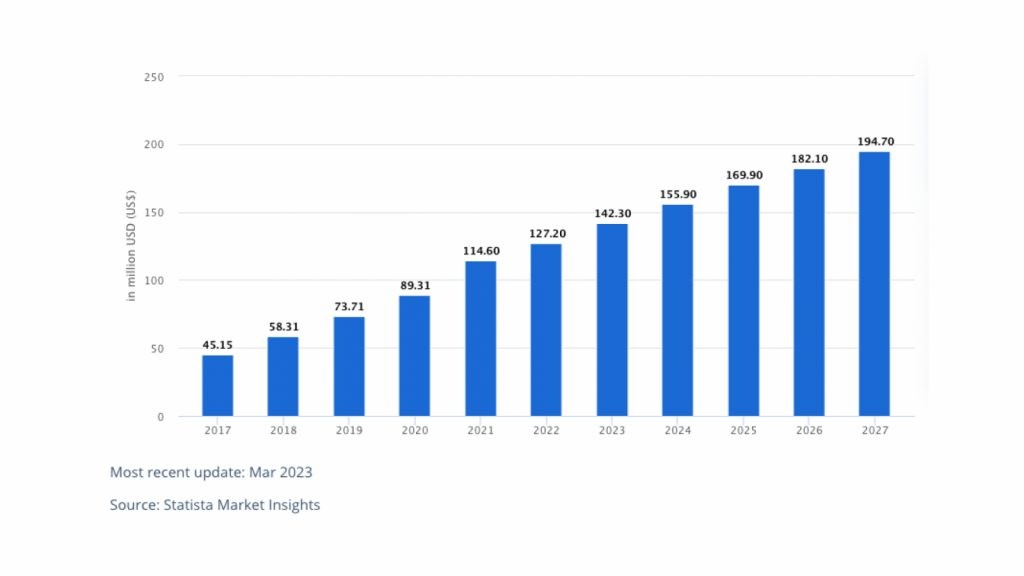
While previously advertising could only focus on one way of transmitting information, here it acts as a multi-channel tool and affects on all available channels of perception.
• Thanks to creativity.
Creativity in this segment determines a lot, because it helps to make interesting promotional offers.
Since people don’t want to look at ads for a long time, the main task is to attract and hold the user’s attention. To do this, digital professionals use topical themes, bright colors, simple shapes, and easy-to-read images.
Note, however, that creatives shouldn’t be provocative. Of course, performance marketing quite often uses this approach. But the best strategy would be to implement brandformance tools which allow to create attractive creatives without harming the image of the brand.
These rules we use at BYYD as well.
To know more about the Rich Media format, check out our collection of articles.
- 19 attractive Rich Media advertising mechanics
- Which ad format for mobile apps should you choose?
- How to attract the user’s attention? 7 Rich Media advertising examples
BYYD cases
Let’s show on our recent cases how to properly use Rich Media creatives to increase reputation and retain user attention.
Case WHISKAS
The international pet food brands Whiskas and Pedigree decided to advertise on our mobile program platform. The goal was to announce a promotion for “Animal Day”, attract users to the site and encourage users to register and participate in the prize draw.
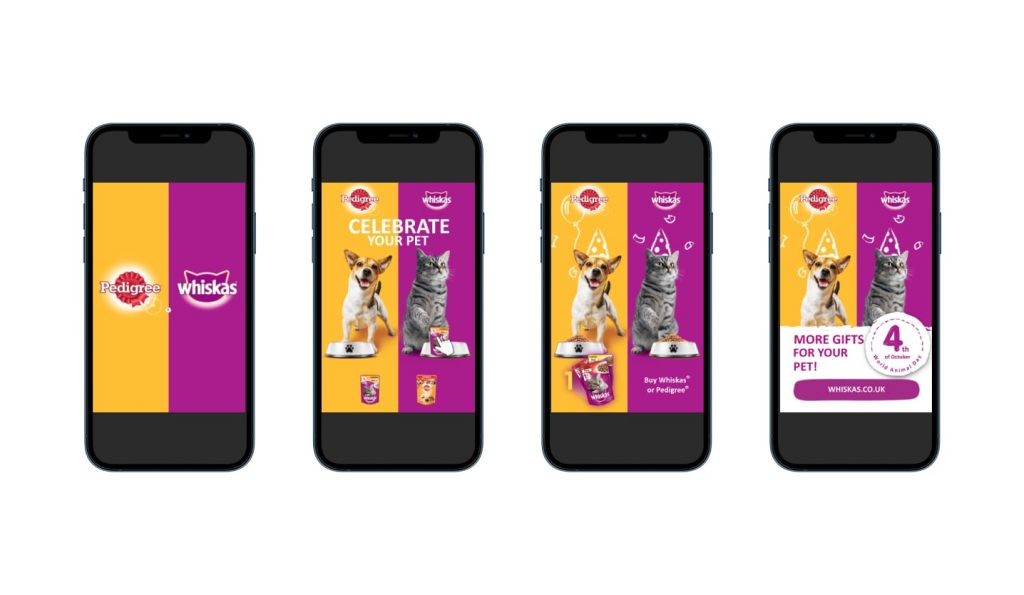
Interaction invites the user to feed the animals on the screen. To do this, it’s necessary to touch the screen and pull the brand’s products to a specific location. When the user’s attention is attracted by the interaction, an advertising message appears.
As a result of the campaign, we achieved a high CTR of 2.23%.
Case HUMMEL
Our goals in this case was to draw attention to the “Mindful Training collection”, attract people to offline stores and attract the target audience to the website.
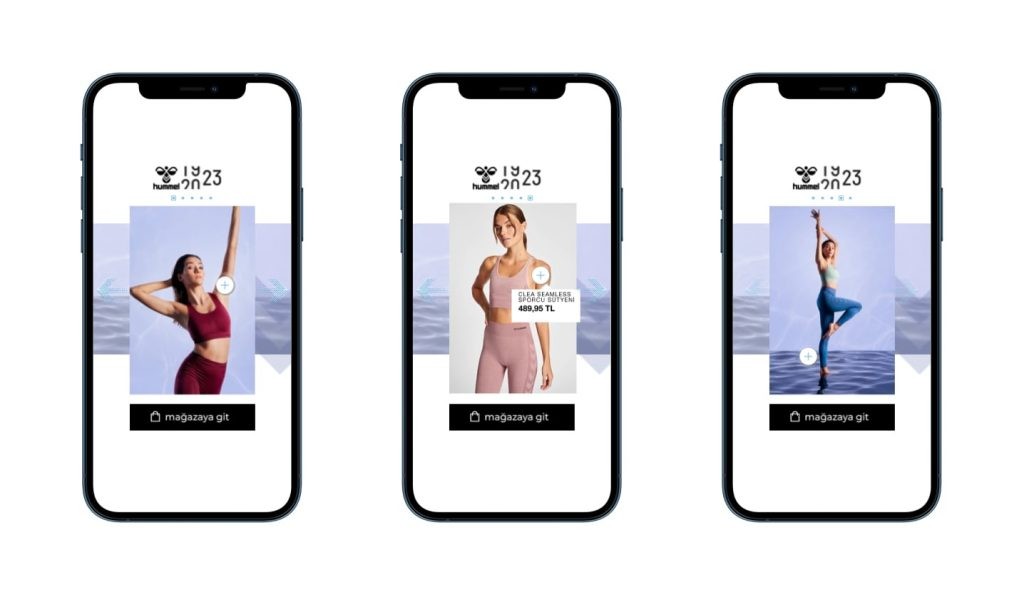
To do this, we used rich media. Our designers developed a “gallery” format of creative. In the course of interaction, a person studies the brand’s new products. Such a banner increases trust to the brand and gives the right amount of information.
Case ZARQAND
Zarqand is a producer of confectionery products, which has been present on the Uzbekistan market for more than 17 years. Our tasks were to increase brand awareness and knowledge about new products of the company.
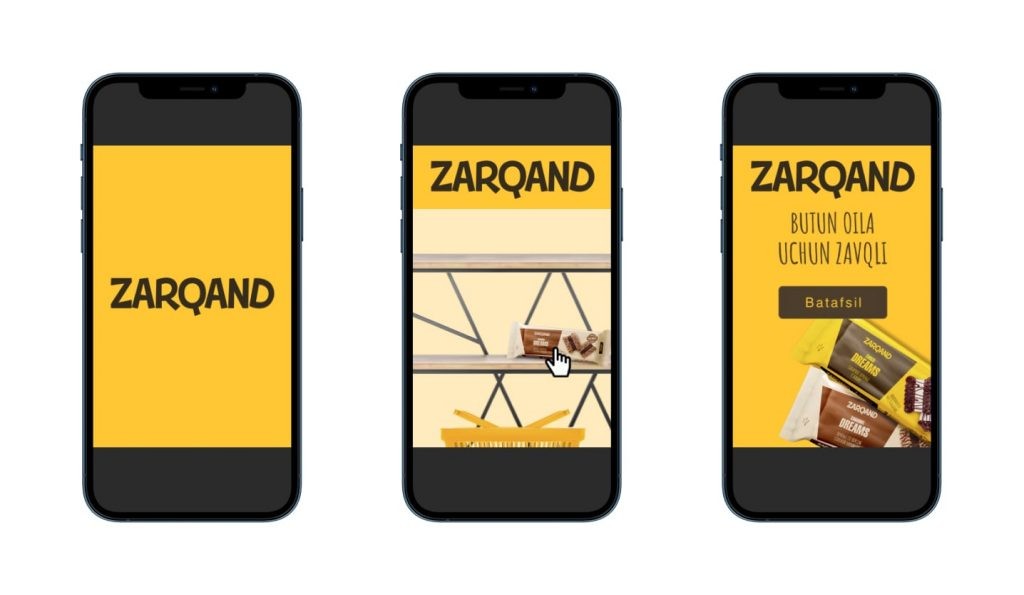
As a promotion tool we used two rich media creatives. The chosen mechanic was a “shopping cart“. The user has to assemble a basket of the brand’s products, and then a box with a call to action appears.
The call to action, contrasting colors, and proper placement of objects in the frame help increase the appeal of the advertising creative and draw attention to the offer.
Conclusion
Rich media is a powerful tool that benefits advertisers, publishers, and users alike. Interactive banners help brands be entertaining and broadcast only useful information to users.
Use Rich Media creatives in your advertising campaigns!
Sign up for our platform now, contact the local team numbers at the bottom of the site or email hello@byyd.me
For consultations and cooperation You can also contact:
- by phone +1 (929) 999-5737;
- or through the form on the site.